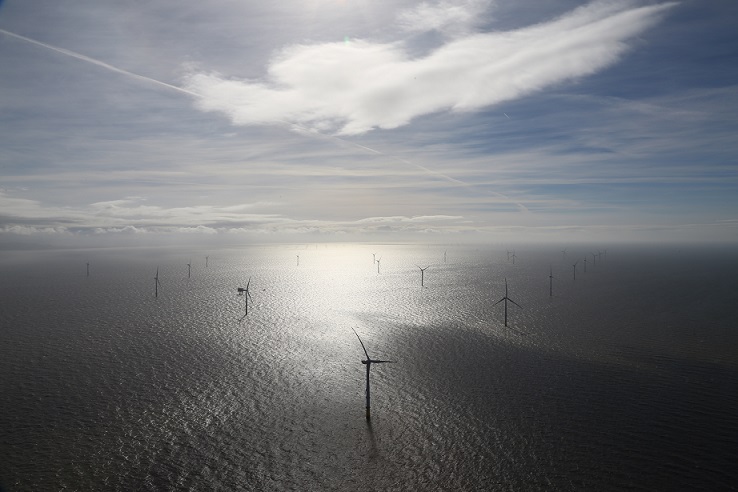Tim Pick, the UK’s first Offshore Wind Champion, has called on the UK government to mobilise investment in supply chains to reduce grid constraints and compete with the US Inflation Reduction Act (IRA) and EU’s Green Deal Industrial Plan.
Pick had been appointed the Offshore Wind Champion in May 2022 and led the Offshore Wind Acceleration Taskforce (OWAT) in discovering methods to spearhead the UK’s wind sector. This was to support the UK’s offshore wind target of having up to 50GW operational capacity by 2030.
With the release of Pick’s report, Seizing our opportunities: independent report of the Offshore Wind Champion, he emphasised that the UK can learn from the successes and missed opportunities from the IRA and Green Deal.
The report states that a “greater emphasis” from The Crown Estate and continued progress from Crown Estate Scotland on supply chain development as part of their seabed leasing processes could be a major boost to the sector.
Alongside this, there should be increased funding for the Offshore Wind Growth Partnership (OWGP) or a similar collaborative funding vehicle to enable a broader range of supply chain development programmes to be implemented. Non-Price factors should be introduced to the Contracts for Difference (CfD) allocation process.
Implementing these measures will help secure future investment in the offshore wind sector and maintain the UK’s position as a leader in this field.
@RenewableUK is highlighting the publication today of a new report by the @energygovuk's Offshore Wind Champion Tim Pick, which contains a series of key recommendations to speed up the rate at which the UK secures much-needed new offshore wind capacity and builds up new supply… pic.twitter.com/ndWF46Nx5a
— RenewableUK (@RenewableUK) April 5, 2023
Supply chains have had a detrimental impact on the renewable industry as a whole, let alone the offshore wind sector. The Global Wind Energy Council (GWEC) recently warned that policymakers must have a “decisive impact” in tackling supply chain issues in a bid to unlock 680GW of global new wind capacity by 2027.
Supply chain issues have impacted the cost of developing many wind projects in the UK. Recent analysis by Cornwall Insight indicated that rising cost of capital threatens to derail the expansion of renewable energy projects.
Inflation and interest rates, which have both risen sharply due to cost-of-living crisis, supply chain problems and labour shortages have culminated in the amount of obstacles plaguing the renewable generation sector. Cornwall Insight’s data revealed that the weighted average cost of capital (WACC) for renewable projects by about 4% since early 2021.
Pick also emphasised in his report the “urgent need to upgrade our national grid for a world of high renewables penetration and widespread electrification of homes and businesses”.
The current national grid is also not specifically built to support the amount of projects and technologies seeking to be connected. It initially had been created in 1936 to carry coal-power around the nation.
This is a pivotal part of Pick’s report. He highlighted that grid connections were increasingly becoming the rate-limiting factor for offshore wind deployment going forward. For this, investment in the network in addition to reformation of the queue arrangements for grid connections, must be spearheaded.
“Offshore wind is a priority industry for the UK’s green economy and developing a new industrial growth plan will help the UK to compete internationally and attract tens of billions in private investment,” said RenewableUK’s CEO Dan McGrail on the release of the report.
“As Tim’s report highlights, creating the right investment climate needs a sustainable approach on prices and clean power auctions to support long-term growth and supply chain development,”
“His report also makes clear that we urgently need to speed up the process for planning and connecting projects to the grid, as well as giving Ofgem a mandate to unlock investment in net zero infrastructure. At the moment, it can over a decade to get a new wind farm up and running, which is time we don’t have to meet the goal of a cheap, clean power system.”






